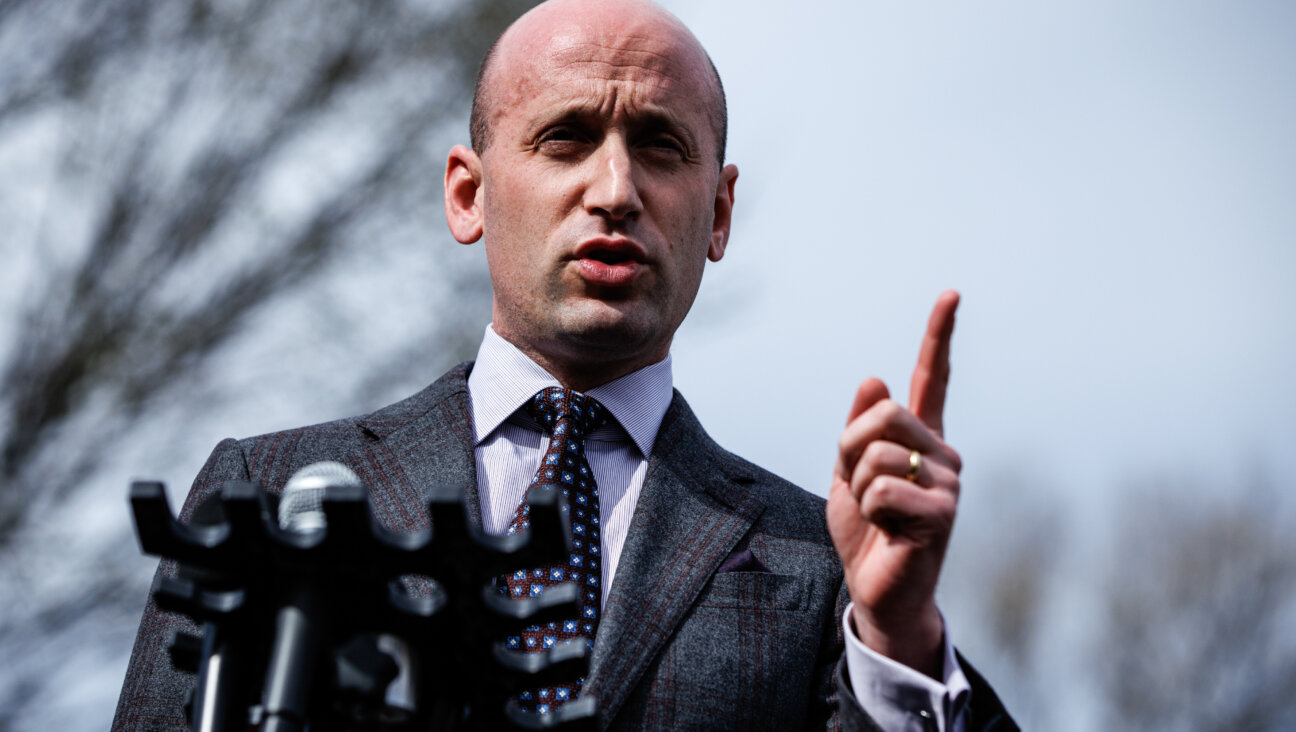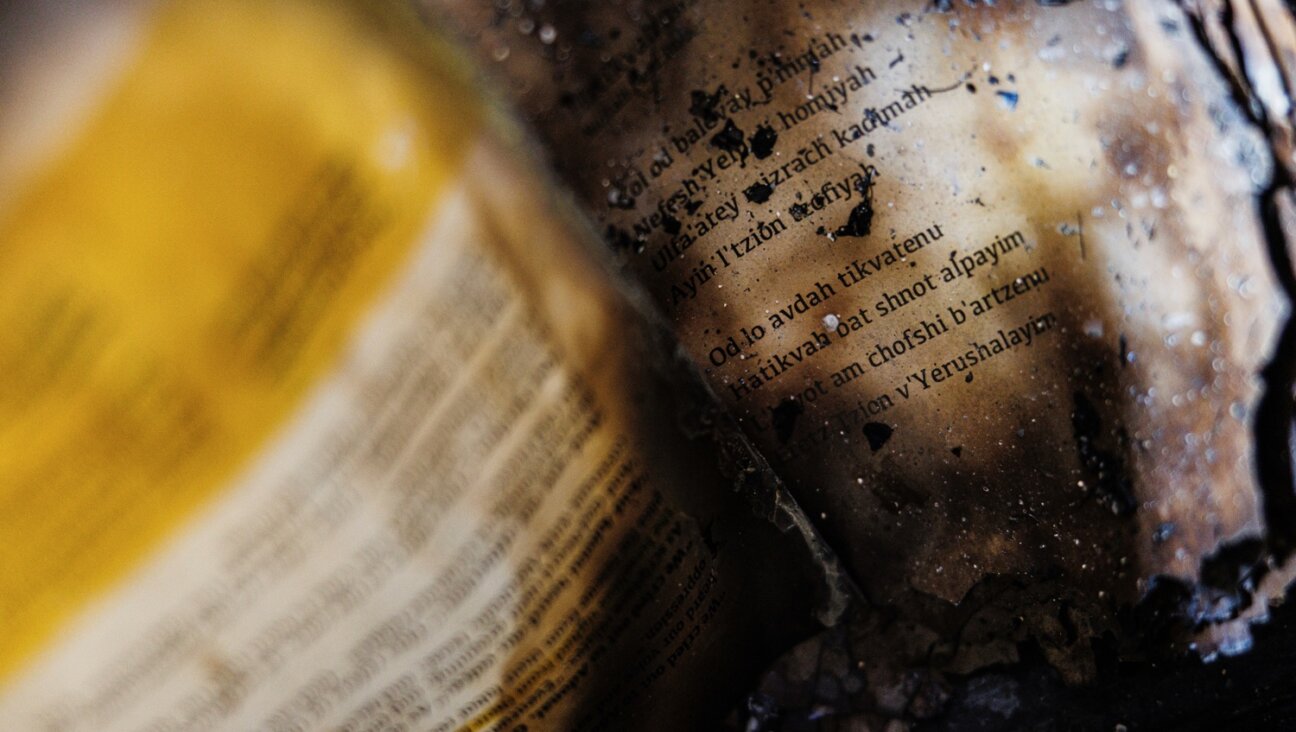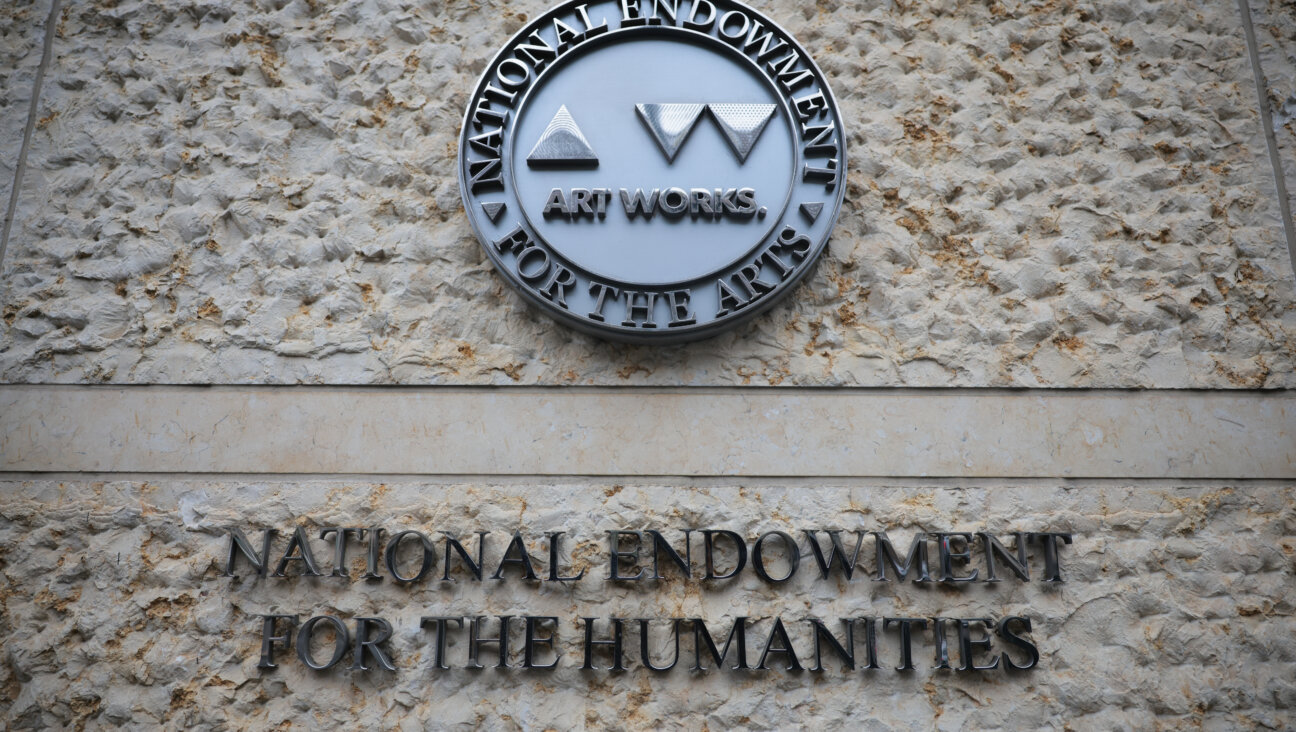Revisionist: It’s Time To Quit Shoah Fight
One of the primary leaders in the fight to question and delegitimize the Holocaust has proclaimed that fight to be a lost cause, sparking a furious debate among his cohorts.
Mark Weber, a telegenic Californian, has served for 15 years as director of the Institute for Historical Review, which was founded in the late 1970s as a center for people dedicated to doubting and criticizing mainstream histories of the Holocaust.
This month, however, Weber released an essay on the institute’s Web site, questioning whether this work has ever had any relevance. Weber argued that Holocaust revisionists are unlikely to have any success in convincing large numbers of people.
“It’s been almost 30 years, and Holocaust revisionism has gotten almost no support in academic circles or society at large,” Weber told the Forward. “It’s gotten some support in Iran, or places like that, but as far as I know, there is no history department supporting writing by these folks.”
The argument in Weber’s essay, “How Relevant Is Holocaust Revisionism?” might appear, at first glance, to be good news for the Jewish organizations that have fought against Holocaust revisionists. But in his essay, Weber calls for his movement to shift to a new mission, one more purely directed to fighting against “Jewish-Zionist power.”
Michael Shermer, a columnist for Scientific American who wrote a book about Holocaust revisionists, said that “for Weber, the Holocaust is just a minor skirmish. The real war to be won is about the Zionists.”
Though Weber, like most Holocaust revisionists, is not a fan of the Jewish community, his essay has not even gained him popularity among his fellow travelers. Bradley Smith, a former employee of Weber’s institute who is a prominent online publisher of Holocaust revisionist material, told the Forward that he is putting together a whole issue of his newsletter with arguments against Weber.
“It’s hard for me to think of Mark Weber as betraying me, because we’re friends. And yet, there are those who feel he has betrayed the institute and that he has betrayed the revisionist movement such as it is,” Smith said in a phone interview from Mexico.
Smith said that a number of prominent revisionists will be calling for Weber’s resignation from the institute.
The world of Holocaust revisionists — inhabited by people who are, by nature, disputatious and unconcerned with social norms — is not one in which divisions and fights have been foreign. Weber took over the Institute for Historical Review after a prolonged and expensive legal fight with its founder, Willis Carto, who had built the institute into what both antagonists and protagonists acknowledge was the premier forum for Holocaust doubters and deniers.
Since taking over, Weber has continued to publish writing on the Holocaust and on World War II. But he came to the institute after working with the white supremacist National Alliance party, and he has pushed to broaden the institute’s mandate. The Web site that Weber has built features such articles as “The Jewish Role in the Bolshevik Revolution” and “Israel at 60: A Grim Balance Sheet.”
In his new essay, published January 9, Weber does try to position himself as a more moderate voice in the debate about the Holocaust. He acknowledges Jewish suffering, and notes that Joseph Goebbel’s diaries speak about a concerted campaign to eliminate the Jews — a heretical view for many Holocaust doubters.
“Much of the predictable hostility toward my piece has come from people who are basically cultists — or fanatics on this issue,” Weber told the Forward. “They view it with an almost religious fervor.”
Already, this has appeared to cause some questioning on revisionist Web sites. One commenter, writing under the handle Carto’s Cutlass Supreme, responded to Weber’s use of Goebbel’s diary by asking: “What would people say about that here? Do we know the diary couldn’t have been tampered with?”
Weber’s discussion of Jewish suffering, though, is a lead-in to the historian’s broader point, which is that the Holocaust doubters have not been effective agents in the broader battle against Jewish power.
Michael Santomauro, who runs an e-mail list dedicated to questioning Jews and the Holocaust, said that Weber’s shift is a strategic mistake.
“I think it is an unfortunate path he is taking, because the Holocaust is an effective weapon,” he told the Forward. “When the Holocaust is used as a weapon, it explains a lot of the lopsided foreign policy.”
But for Santomauro and many of his online friends, much of the problem with Weber is not his ideology, but his work output. Most prominent revisionists are prolific writers who will publish anywhere in order to have their views distributed. Under Weber, the institute has ceased publication of its journal and stopped hosting international conferences.
“He hasn’t done any work,” Smith said.
Aryeh Tuchman, director of the Anti-Defamation League’s Library and Research Center, said that Weber’s slowed production hurt the doubters and deniers of the Holocaust long before his new essay. “There is not a central Holocaust denial organization or body anymore,” Tuchman said. “There’s no one who can serve to motivate them anymore.”
The Iranian government, under President Mahmoud Ahmadinejad, tried to take up this mantle when it hosted a conference with Holocaust doubters last year. But even Weber said that the conference didn’t do revisionists any favors.
“If the point of the conference was to be scholarly, the thing was a failure,” Weber said. “The thing only strengthened and confirmed the views people already had about Iran, Ahmadinejad and Israel.”
The Forward is free to read, but it isn’t free to produce

I hope you appreciated this article. Before you go, I’d like to ask you to please support the Forward.
Now more than ever, American Jews need independent news they can trust, with reporting driven by truth, not ideology. We serve you, not any ideological agenda.
At a time when other newsrooms are closing or cutting back, the Forward has removed its paywall and invested additional resources to report on the ground from Israel and around the U.S. on the impact of the war, rising antisemitism and polarized discourse.
This is a great time to support independent Jewish journalism you rely on. Make a Passover gift today!
— Rachel Fishman Feddersen, Publisher and CEO
Most Popular
- 1

Opinion My Jewish moms group ousted me because I work for J Street. Is this what communal life has come to?
- 2

Opinion Stephen Miller’s cavalier cruelty misses the whole point of Passover
- 3

Opinion Passover teaches us why Jews should stand with Mahmoud Khalil
- 4

Opinion Pro-Palestinian protests enriched Jewish life on my campus. Trump’s actions will do the opposite.
In Case You Missed It
-

Fast Forward Hours after Passover Seder, arsonist targets Gov. Josh Shapiro’s home
-

Culture Jews thought Trump wanted to fight antisemitism. Why did he cut all of their grants?
-

Opinion Trump’s followers see a savior, but Jewish historians know a false messiah when they see one
-

Fast Forward Trump administration can deport Mahmoud Khalil for undermining U.S. foreign policy on antisemitism, judge rules
-
Shop the Forward Store
100% of profits support our journalism
Republish This Story
Please read before republishing
We’re happy to make this story available to republish for free, unless it originated with JTA, Haaretz or another publication (as indicated on the article) and as long as you follow our guidelines.
You must comply with the following:
- Credit the Forward
- Retain our pixel
- Preserve our canonical link in Google search
- Add a noindex tag in Google search
See our full guidelines for more information, and this guide for detail about canonical URLs.
To republish, copy the HTML by clicking on the yellow button to the right; it includes our tracking pixel, all paragraph styles and hyperlinks, the author byline and credit to the Forward. It does not include images; to avoid copyright violations, you must add them manually, following our guidelines. Please email us at [email protected], subject line “republish,” with any questions or to let us know what stories you’re picking up.
















